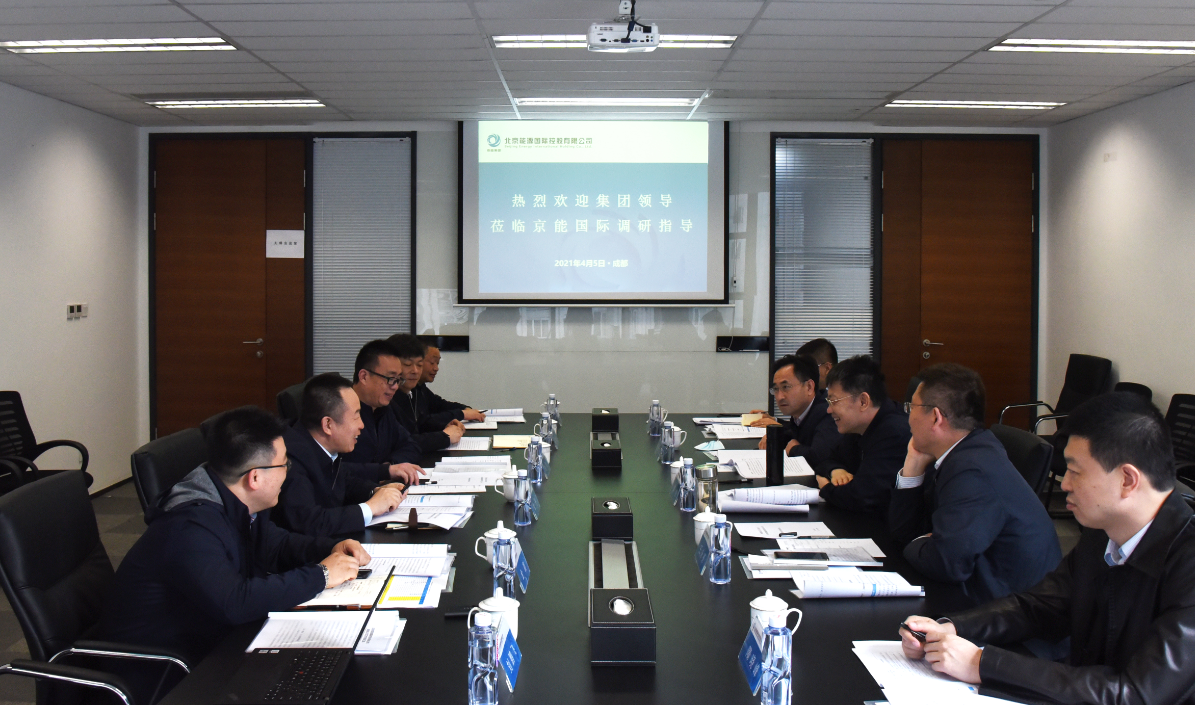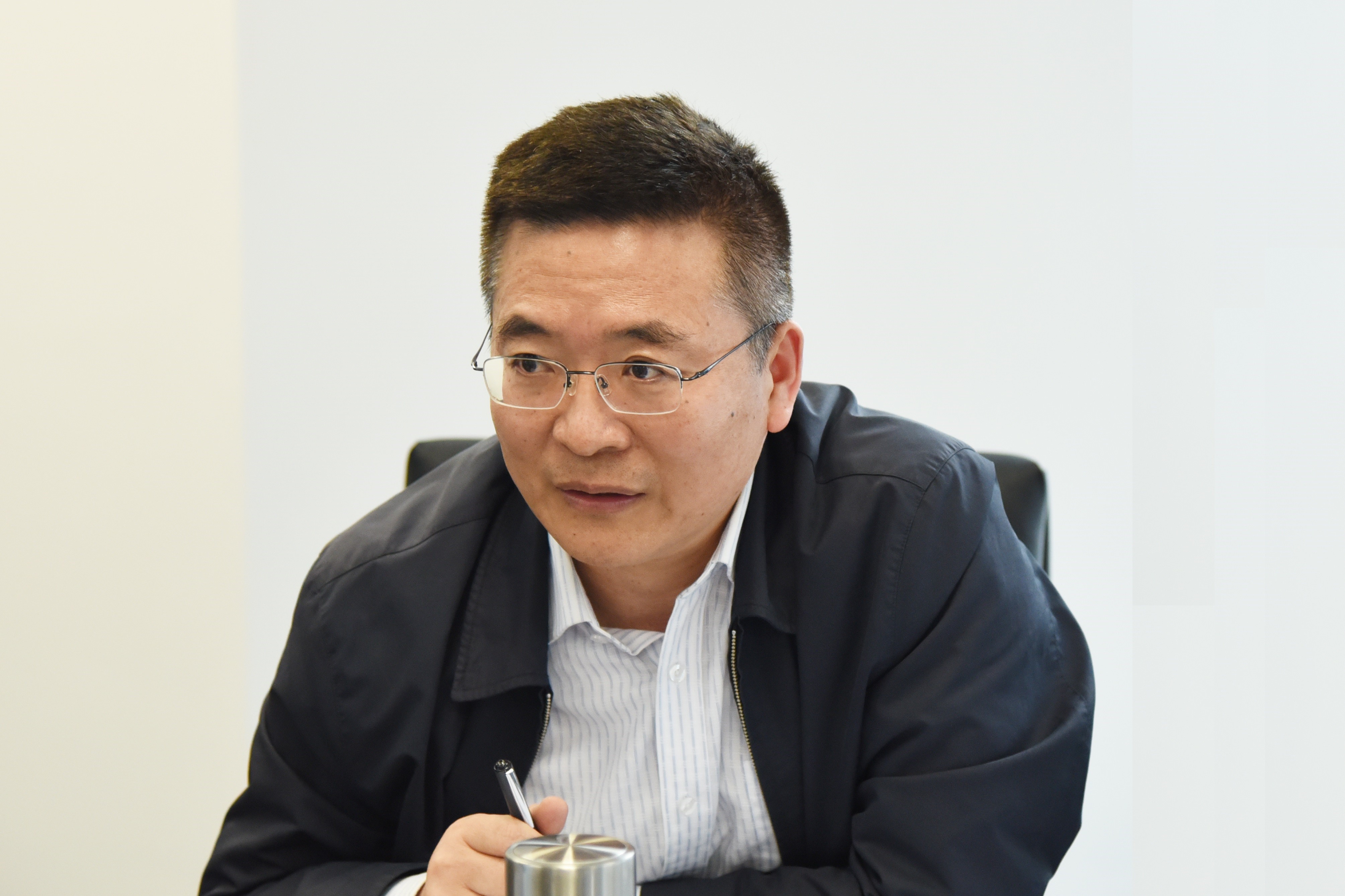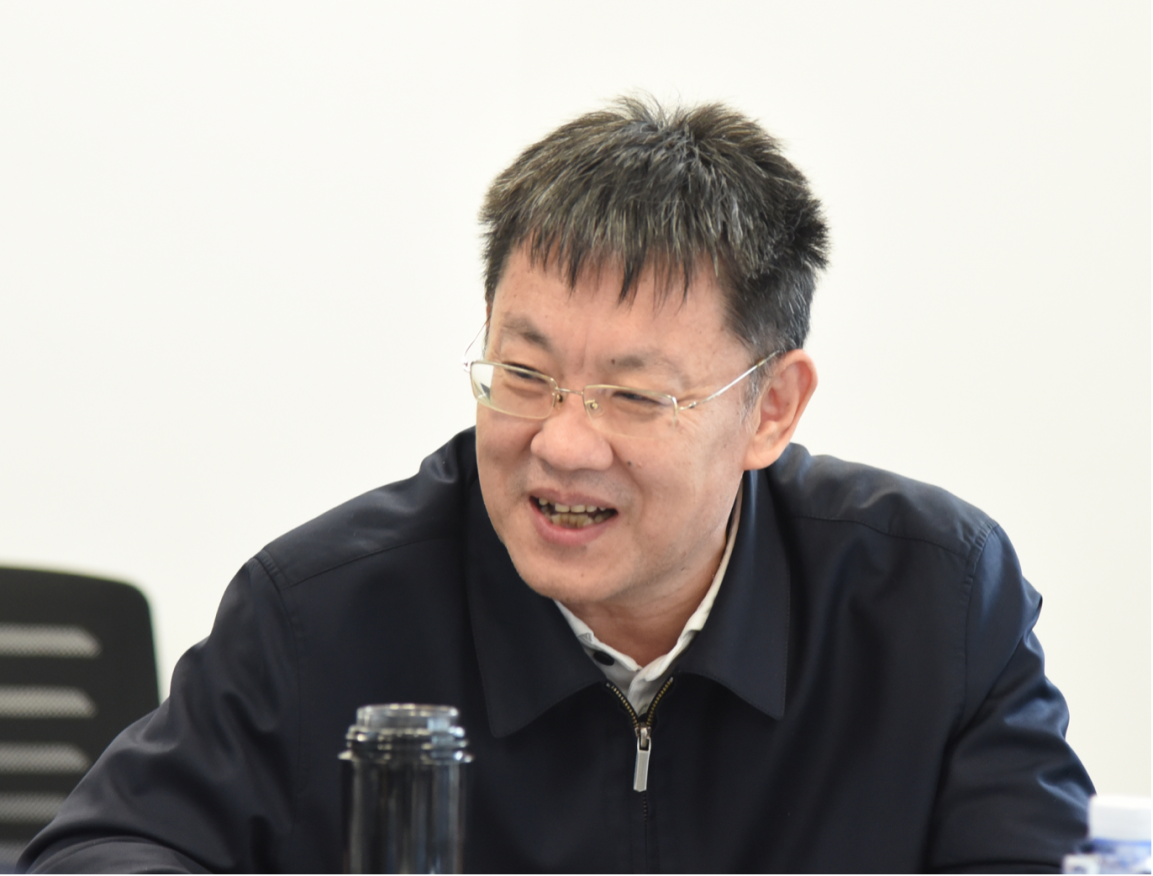On the afternoon of April 5, Jiang Fan, Secretary of the Party Committee and Chairman of Beijing Energy Holding Co., Ltd. and his colleagues arrived at Southwest Regional Company of Beijing Energy International Holdings Co., Ltd. for a field visit and provided work guidance. He was accompanied by Party Standing Committee Member and Deputy General Manager Wang Yongliang, Board Secretary and Office Director Zhang Xueliang, and Director of Strategic Development Department Sui Xiaofeng of Beijing Energy, and Chairman of the Board Zhang Ping, President Zhu Jun, and Director of HR&Administration Jin Xin of Beijing Energy International. The meeting was also attended by Lei Muchuan, General Manager of the Southwest Regional Company and Tibet Energy Company, and Yang Qin, Deputy General Manager of the Southwest Regional Company.

At the meeting, Lei Muchuan gave a special briefing on the progress of key tasks such as project expansion and resource reserve, reform of the system and mechanism, enhancing operation and management, as well as vision for the annual work and supporting measures of the Southwest Regional Company and Tibet Energy Company. Since Beijing Energy became the holding company, with a year of hard work, the Southwest Regional Company and Tibet Energy Company of Beijing Energy International have actively resolved historical problems, and got on the track of sound development; improved the management and control system and accelerated the enterprise reform to boost vitality; promoted the environmental assessment of hydropower planning, and sped up the development and storage of new energy projects; and enhanced the maintenance of cooperative relations, strengthened management to enhance the competitiveness of company, achieving remarkable progress in various tasks.
After the meeting, the participants conducted in-depth exchanges on promoting the hydropower development of Tibet Energy Company and actively promoting the final accounts for completed projects. Zhang Ping pointed out that the Southwest Regional Company and Tibet Energy Company should seize the historic development opportunity as the country strives towards the goal of “emission peak and carbon neutrality”, grasp the opportunity of accelerating the construction of water conservancy and hydropower projects along the China-India border, and give full play to the brand effect of Beijing Energy. Taking into account the regional characteristics of Sichuan and Tibet to suit local conditions, efforts should be made to increase project reserves, promote high-quality project development and mergers & acquisitions, actively expand the business in the fields of distributed energy and integrated intelligent energy, accelerate the tackling of historical problems such as receivables and payables, enhance benchmarking, strengthening management, implement various measures to reduce costs and increase efficiency, and continue to improve the efficiency of the power stations, so that the employees of the Southwest Regional Company and Tibet Energy Company are full of confidence in the company’s future.

Wang Yongliang pointed out that the following requirements should be followed: firstly, stock projects must set the target of the final completion accounts and accelerate relevant work, strengthen benchmarking to the industry, unleash potential, and standardize management in accordance with the unified requirements of Beijing Energy; incremental projects should take into account the structural characteristics of the high proportion of local consumption of energy in the southwest region in setting the goal of the “14th Five-Year Plan”, expand wind power and photovoltaic power. The construction of hydropower projects should be moderately advanced and consolidate the results, improve the implementation plan with the features of Beijing Energy, and confirm the development rights as early as possible. Secondly, M&A projects should focus on unleashing the potential of space and strive to achieve scale development of the region; the development of combined heating, power and cooling projects should be based on a certain scale, and actively expand quality mid-to-high-end users in a selective and targeted approach. Third, Beijing Energy International should not only serve as place for trial of mixed-ownership reform for Beijing Energy, but also a high-yielding field producing all kinds of work experiences. While seeking high-quality development, it should also actively summarize the experience and set a good example within Beijing Energy.

Jiang Fan spoke positively of the achievements of Beijing Energy International over the past year. He said that its reform pilot of new mechanism has brought new atmosphere, new morale and new impetus to Beijing Energy, and is gradually setting a good example. Regarding the further work of the Southwest Regional Company and Tibet Energy Company, Jiang Fan emphasized the following points: first is to maintain a momentum of rapid and high-quality development, seize the historical opportunity for the development of China’s clean energy industry, make every effort to explore the market of the Southwest and Tibet, accelerate the construction of high-quality projects, develop the advantages of large-scale development as soon as possible, and improve economic benefits. Second is to further enhance corporate management and continuously improve the corporate system and the building of internal control and management system. Third is to actively promote the preliminary work of hydropower resources in Tibet, increase coordination with the government of Tibet Autonomous Region, appropriately increase initial investment, consolidate project development rights, actively promote contact and coordination with development partners, effectively achieve strategic cooperation goals, introduce strategic investment, ensure the effective implementation of projects, and maximizes the company’s benefits. Fourth is to further improve the Party building at the primary level, implement the requirements for comprehensively strengthening Party self-discipline, standardize the implementation of the “three meetings and one lecture” (the system of holding Party branch general meetings; meetings of Party branch committees; Party group meetings; and Party lectures), strengthen Party member education, improve the standardized management of the Party branches, and effectively give play to the exemplary and pioneering role of Party members and Party branches.